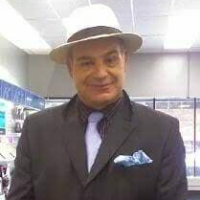Claremont Felony Lawyer, California
Sponsored Law Firm
-
 x
x

Click For More Info:
-
Law Office of J. Jeffrey Morris
11845 West Olympic Boulevard Suite 1000 Los Angeles, CA 90064» view mapAccident & Injury Law Difficult Cases and Clients Are Welcome
J. Jeffrey Morris is an experienced attorney who has been practicing law in California since 1987.
800-781-3531
Antonio Jose Bestard
✓ VERIFIEDCriminal, Felony
Antonio J. Bestard has 40 years of experience, and is prepared to manage the complexity issues of criminal law. Mr. Bestard is Certified Legal Spec... (more)
FREE CONSULTATION
CONTACTDavid Kaloyanides
Criminal, Civil & Human Rights, DUI-DWI, Felony
Status: In Good Standing Licensed: 32 Years
FREE CONSULTATION
CONTACTFREE CONSULTATION
CONTACTCraig Wilke
White Collar Crime, RICO Act, Felony, Civil Rights
Status: In Good Standing Licensed: 34 Years
FREE CONSULTATION
CONTACTJeffrey Anthony Van Wagenen
Criminal, DUI-DWI, Federal, Felony
Status: In Good Standing Licensed: 25 Years
 J. Jeffrey Morris Los Angeles, CA
J. Jeffrey Morris Los Angeles, CA

